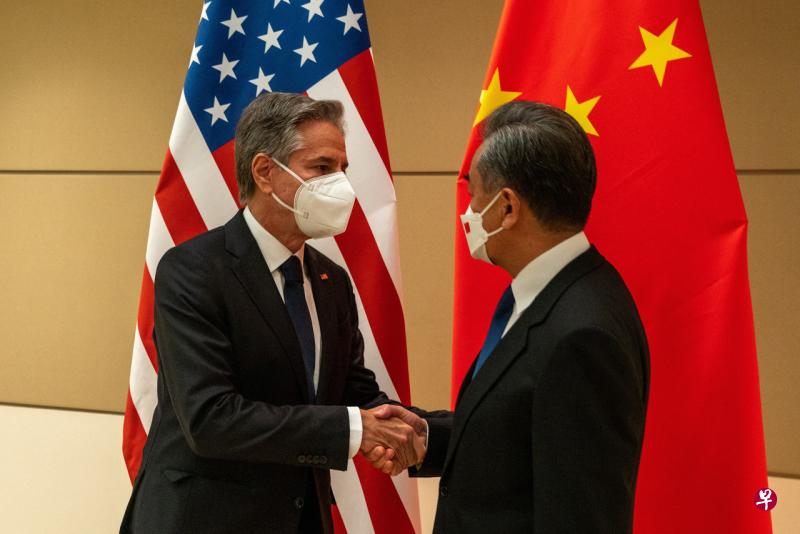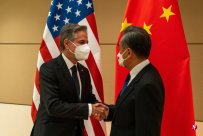
(Morning News) U.S. Secretary of State Broskere held a meeting with Chinese State Councilor and Foreign Minister Wang Yi at the United Nations venue in New York. The two sides discussed the necessity of maintaining open communication channels and focusing on the tension of the Taiwan Strait.
Bloomberg and Reuters comprehensively reported that Brinken and Wang Yi talked for 90 minutes on Friday (September 23).This is the first time that the two met in the Foreign Minister of the G20 Group (G20) Foreign Ministers' meeting in Bali, Indonesia in July.
A senior official in the United States told the media that the issue of Taiwan was the focus of the meeting, and the two had a direct, frank and in -depth dialogue.
The official said that Brinken clearly stated to Wang Yi, "The United States has always adhered to a Chinese policy. This policy has not changed. It is absolutely important to maintain peace and stability on both sides of the Taiwan Strait."
Brinken also emphasized again that if China provides material support or large -scale evasion of sanctions for Russia's invasion of Ukraine.
According to Xinhua News Agency, Wang Yi said that the current Sino -US relations have encountered serious impact, and the lessons of the lessons need to learn from the United States.Sino -US relations are at a critical word. It is urgent to establish the correct way to get along with the world, history, and people's responsibility to the people of the two countries to promote the stabilization of relations between the two countries.
Wang Yi focuses on the recent errors of the United States on the wrong behavior of the United States on the Taiwan issue.Emphasizing the Taiwan issue is the core of China's core interests, and the weight in the hearts of Chinese people is as heavy as Taishan.Maintaining national sovereignty and territorial integrity is our mission, and never vague.
The United States has a clear political commitment to China on the Taiwan issue.There are three joint communiqués in China and the United States, and the current US government has repeatedly stated that it does not support "Taiwan independence."However, the US actions run counter to this, trying to destroy China's sovereignty and territorial integrity, obstruct the great cause of peace and reunification in China, engage in the so -called "Taiwan", and even publicly claim to cooperate to prevent Taiwan.EssenceThe United States should have returned to the three joint communiqués of China and the United States and a Chinese principle, and reiterated a Chinese policy cleanly and clearly stated that they opposed various "Taiwan independence" division activities.
Wang Yi emphasized that the two major countries in China and the United States have both common interests and profound differences, which will not change.From the first day of contact, the two parties know that they are dealing with countries with different systems. This has not hindered the two parties to cooperate based on common interests, nor should they become the reason for the opposition between China and the United States.It is hoped that the United States will have awareness of China, reflect on and change the policy of the main line to curb the main line. Do not try to deal with the Chinese in the position of strength. Do not always think about blocking China's development, and do not engage in unilateral bullying.To create a good atmosphere for the restoration of normal exchanges between the two parties, it is necessary to promote the return of Sino -US relations to the healthy and stable development track.
Perlis, Speaker of the House of Representatives, visited Taiwan on August 2. After she flew away from Taiwan the next day, the Chinese PLA held a large -scale military exercise in the sea airspace around Taiwan.In an exclusive television interview on September 18th, US President Biden said that if mainland China conducts "unprecedented offensive" on Taiwan, the US military will defend Taiwan.This is the fourth public that Biden has publicly stated that the United States will send troops to defend Taiwan, and it is also the most clear statement for this issue to date.
Although the White House insisted on not changing the US policy on Taiwan, Beijing's remarks from Bayiden sent a wrong signal to those who seeks independence in Taiwan.


